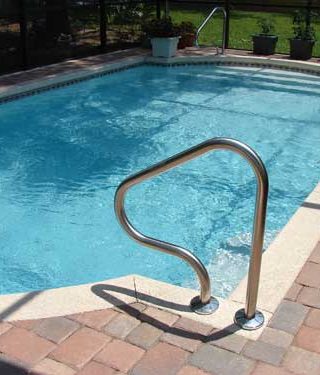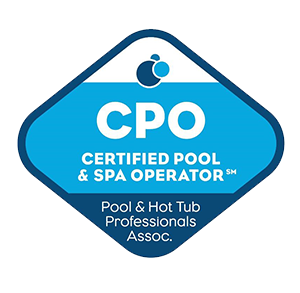Steve White has a photograph, taken from a rooftop, looking down on 186 pool drain covers laid out in rows on a parking lot.
Those were covers his West Boylston, Mass.-based firm replaced in 2008, the year commercial facilities scrambled to meet the deadline set by the Virginia Graeme Baker Act.
The snapshot is a memento from what was one of his busiest years as a pool service professional.
Certainly, VGBA created a wave of work for pool service professionals specializing in underwater repairs. Now, some are getting ready for a second wave because, almost five years later, many of those covers are set to expire.
White is already receiving calls from clients wanting their pools up to code by next swimming season. Demand for his diving skills “will only increase as this issue gets more publicity,” says the owner of Underwater Pool Masters.
He’s not the only one who intends to gain from drains again.
“We’re ramping up to do a heck of a lot more this time around,” says Fred Ross. The owner of Deckside Pools in Orange, Calif., is notifying clients that their drain covers have a limited lifespan. “We’ve had to market to them and remind them that the expiration date is coming around and that we hope you budgeted for it,” he said. While taking care of current customers is a top priority, he’s also reaching out to prospects by looking at public records online to see when commercial facilities were last certified as VGBA compliant.
“That’s the big immediate opportunity,” Ross says. “If you’re not [doing that], you’re leaving a ton of money on the table.” He’s already busily swapping out covers. Deckside Pools, which has several certified divers on staff, had 1,500 left to do as of press time.
Before you dive
Want to get in on the drain game? A word of caution: The underwater repair business can be expensive and complicated. It takes 30- to 36 hours to become certified through Scuba Schools International — one of several dive programs. Training encompasses a written exam and several tests where your scuba skills will be graded in an ocean or lake, says Watson DeVore, director of education in Fort Collins, Colo. Training programs cost $350 and up. Of course, not everyone passes.
Plus, you’ll need equipment. Scuba gear and pneumatic tools will cost you thousands.
Ross’ advice: Don’t go it alone. Underwater repairs, even simple cover switch-outs, are tough tasks to tackle solo if you have filters to clean and chemicals to balance on top of that. “For the independent guy, I would say partner up with someone you trust … otherwise you’ll never get it done,” he said.
You’ll also need to maintain meticulous records so that you can track when covers were replaced and their expected lifespan. That way you can schedule subsequent replacements accordingly. Don’t expect clients to keep these files. Homeowners associations and commercial facilities frequently change management and paperwork gets lost in the shuffle.
Wet behind the ears
On top of everything else, you’ll be neck-deep in competition. VGBA kicked off something of a scuba craze in the pool service sector. That’s been a troubling trend for those who’ve long specialized in this line of work. Dennis Santos is the owner of Elite Divers, a dive shop that has a pool service practice in Randolph, N.J. Pool builders contract with him for underwater jobs, but lately they’ve been adding divers to their own ranks. “It seemed the recession got a lot of pool companies in this kind of work because they weren’t necessarily building as many pools,” Santos says.
Likewise, Drew Anderson says VGBA has flooded the market with underwater wannabes. “Some of these people who happen to be working in the pool business all of a sudden became overnight divers to fill a niche,” says the owner of Scuba Pool Repair in Campbell, Calif. “While I appreciate the American spirit, and while I appreciate entrepreneurialism, I do protect diving and I do take it very seriously.”
The problem is few take it as seriously, Anderson says.
Both Anderson and Santos are divers first, pool repairmen second. Anderson only hires those who’ve graduated from commercial diving school where students learn to wield welders in subaquatic settings. And Santos only sends master divers — those with hundreds of training hours under their belts — out on jobs. Divers work two at a time, minimum, no matter how small the job. It’s a safety measure they say all divers should practice, but they suspect few newcomers are taking the same precautions. Some may not even be certified. (While it’s not illegal to dive without a license, training is highly recommended.)
Any number of things can go wrong under water, such as cuts, blackouts and hypothermia. To prevent the latter, Anderson invested thousands of dollars in a mobile unit that pumps warm water into a wetsuit to counteract a pool’s frigid wintertime temperatures. “These are massive expenses no one would do unless they were serious about keeping people safe,” Anderson says.
So you can understand their frustration when they lose jobs to technicians-turned-divers who work for half the cost. “Hopefully, we’ll see that changing,” Santos says. “They can go back to doing what they do best and create more opportunity for us.”
Drowning in paperwork
Not everyone is eager to cash in on cover swaps. Mike Stinson, doing business as Mike the Poolman in Folsom, Calif., is taking a wait-and-see approach. There’s a question of how, or if, public health departments will enforce cover replacements. Serving the greater Sacramento area puts him in a difficult position when coordinating with officials to certify pools since he has four counties to handle. That means loads of paperwork.
“Some [counties] are more stringent than others,” Stinson says. “And the ones that are more stringent, boy, you really have to dot your i’s and cross your t’s.” Mistakes could cost him a resubmittal fee.
Pro tip: He keeps a video library of all projects. That way if officials have any questions, he can refer back to the footage.
Here’s good news for Stinson and all service techs in the Sacramento market: The Sacramento County Environmental Management Department is easing the administrative burden. If you’re swapping like-for-like covers, and if you have the original paperwork that went along with the initial install, there will be no submission fee. That’s a $150 savings, says Colleen Maitoza, supervising environmental specialist. Her department plans to send letters to pool operators reminding them to replace those soon-to-expire covers so that their facilities are in compliance by next spring.
How other public agencies will address the issue remains to be seen. Some pool technicians speculate it’s not even on their radars, saying local governments don’t have the resources to enforce a federal mandate. Still, service pros shouldn’t wait for health inspectors to twist their clients’ arms to comply. Bring it to their attention first. If they decide not to replace drain covers for whatever reason, have them sign a document stating that you at least offered to bring them up to code. It could limit your liability in the event of an entrapment.








